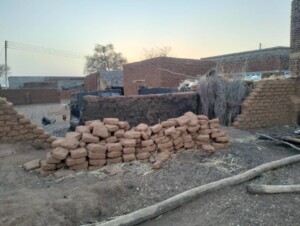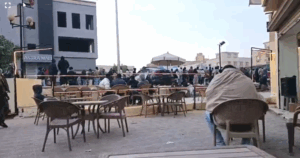Sudan’s displaced, refugees welcome Eid El Fitr to call for peace
Displaced people and refugees in camps in Sudan and abroad sent a message of peace and hope for this year’s Eid El Fitr.

Displaced people and refugees in camps in Sudan and abroad sent a message of peace and hope for this year’s Eid El Fitr.
Several listeners in Yida camp in South Sudan appealed to the United Nations and the warring parties in Sudan to bring about peace in the Nuba Mountains, where they come from, so that the refugees can return to their homes.
Camp leader El Nur Saleh also appealed to the Sudanese government and opposition parties to intensify their efforts to reach a comprehensive peace agreement. Speaking to Radio Dabanga, the camp leader added that humanitarian organisations have to act to improve the situation of the refugees, by providing food and clothing for children and mothers.
In Darfur, the Association of Displaced People and Refugees welcomed Eid El Fitr that celebrates the end of the fasting month of Ramadan. The spokesman for the association, Hussein Abusharati, told Radio Dabanga that both displaced people as residents live in “complex humanitarian conditions, in the hell of a war that is waged by the government and its militias on villages in Jebel Marra”.
Abusharati went on to say that he “salutes the souls of the martyrs among the displaced who were killed in the camps of Aradeiba and Khamsa Dagayig in Wadi Saleh, Hijeir in Nyala, and other camps.”
Price rises
Markets in West and South Kordofan witnessed a significant rise in prices of clothes and accessories for the festive occasion of Eid, which has resulted in the reluctance of people to buy anything.
This week Radio Dabanga reported that markets across Sudan witnessed a sharp surge in the prices of goods and supplies: prices of clothing and sweets have doubled compared to the beginning of the year amid reluctance of people to buy.
Callers from Khartoum observed that while this pre-Eid price surge happens every year, this year it has intensified due to the ongoing fuel and currency crisis; the increased transport and logistical costs are also ultimately carried by the consumer.











 and then
and then